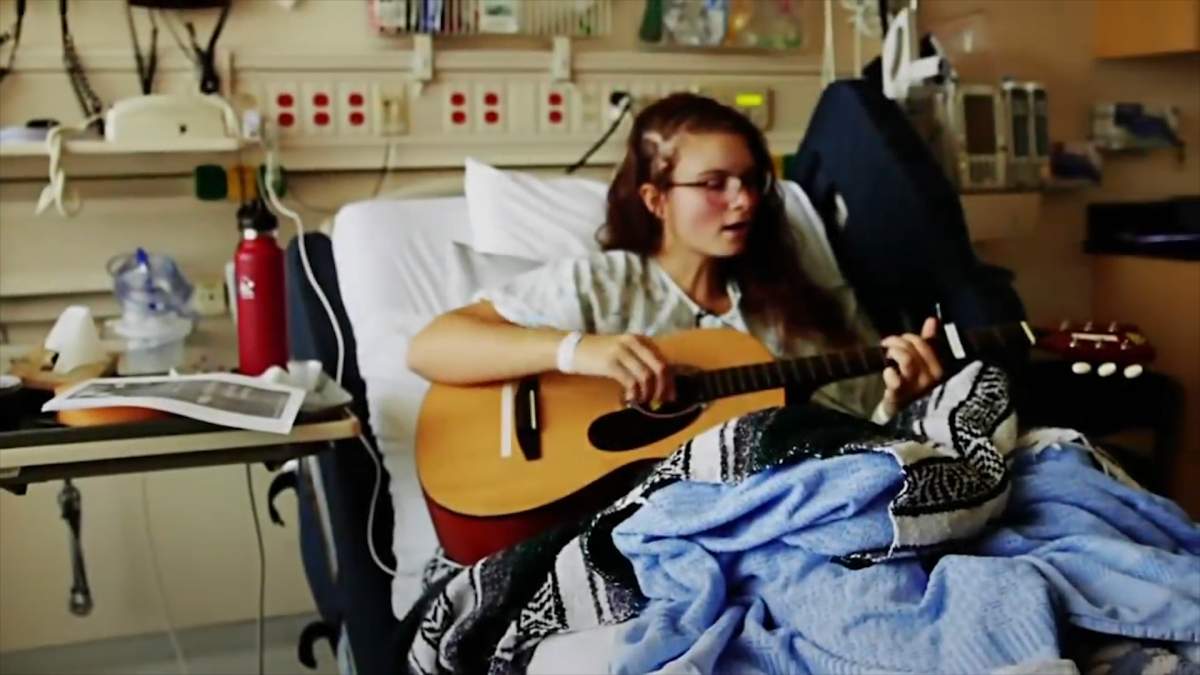A 19-year-old woman sang her way through brain surgery recently as doctors attempted to remove a tumour that was causing her difficulty in being able to sing.

Kira Iaconetti said she had been acting and singing since she was six, calling it the “one thing I’m actually good at,” but about four years ago she started forgetting words and singing off-key.
“Whatever it is, it just feels like a light switch just switches in my brain and suddenly I’m tone deaf, I can’t sing, I can’t process the words in time with the music,” she explains in a video released by the Seattle Children’s Hospital.
Iaconetti told Global News that she first noticed it when she was doing karaoke at home one day and it felt like she had “a tiny poke on her brain” and she couldn’t sing, keep up with the music or remember the word.

She said it started affecting her personality, making her irritable and “more and more paranoid,” so she decided she needed to see a neurologist.
“It felt like nothing was coming out correctly, nothing was coming out in the right,” she said.
“It felt like I wasn’t doing anything correctly and whether or not other people heard it noticed or anything, I did and it drove me crazy.”

Get weekly health news
After visiting with the doctor, it was determined she was experiencing seizures but, as they were often only triggered by music, were difficult to pinpoint.
According to Seattle Children’s Hospital, the cause was unknown until a magnetic resonance imaging (MRI) test showed it was a marble-sized mass in the right temporal lobe of her brain.
Dr. Jason Hauptman, a neurosurgeon at the hospital, said it was known as musicogenic epilepsy.
“These seizures are triggered by listening to music or singing, which is an unfortunate problem for Kira since she is a performer who likes to sing,” Hauptman said.
The mass was a calcified tumour and was pressing up against her auditory cortex, Hauptman says, which may be the reason why the seizures were occurring during her performances.
The hospital says the epilepsy surgery team worked on finding a way to remove the tumour without causing harm to Iaconetti’s ability to sing.
“It’s a cruel, sick joke that it would happen right there in the one thing I’m actually passionate about,” Iaconetti said.
“Messing with it could permanently affect my voice, and because Dr. Hauptman knew how important it is to me to continue singing and acting, he wanted to be very careful when removing my tumour. He didn’t want to interfere with my ability to sing.”
So the team decided they would wake her up during the surgery and perform musical tasks as doctors mapped the areas of her brain that were being used. In doing so, Hauptman would be able to avoid areas of the brain that gave her the ability to produce and interpret music.
She told Global News that while she was told she may only remember a few things about the surgery, she said she remembered the whole period the doctors had her awake.
“I remember going through all the rhythms and tones I had to do and I remember singing the song twice and the second time they sang along with me and that was really cool to actually hear and experience with my brain right there opened,” she said.
The day after her first night in the ICU, a music therapist came in and had her practice singing for a camera and eventually she sang for the camera.
Asked how she felt about being able to perform again, Iaconetti said it still hasn’t felt like her ability to sing has fully returned.
READ MORE: Kingston family holds thank-you fundraiser for hospital that saved baby’s life

“I still don’t think I feel 100 per cent confident going out for musicals but perhaps if I was in the ensemble,” she said.
As a result, she says she’s taking it slow and while seizures haven’t happened since, she said it still feels like they’re trying to come through.
Despite this, she says she’s still thankful for the team at the hospital for helping her and now plans to just take it step by step, working her way back into the musical world.









Comments
Want to discuss? Please read our Commenting Policy first.